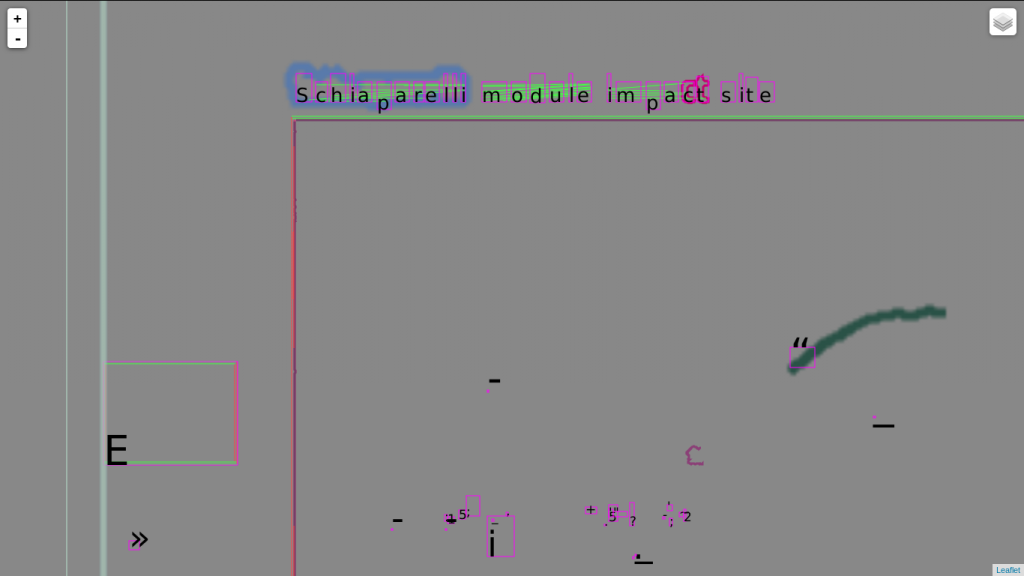“The erroneous information generated an estimated altitude that was negative – that is, below ground level,” the ESA said in a statement.
“This in turn successively triggered a premature release of the parachute and the backshell [heat shield], a brief firing of the braking thrusters and finally activation of the on-ground systems as if Schiaparelli had already landed. In reality, the vehicle was still at an altitude of around 3.7km (2.3 miles).”
The €230m ($251m) Schiaparelli had spent seven years travelling 496m kilometres (308m miles) onboard the so-called Trace Gas Orbiter to within a million kilometres of Mars when it set off on its own mission to reach the surface.
NASA’s Mars Reconnaissance Orbiter High Resolution Imaging Science Experiment (HiRISE) imaged the ExoMars Schiaparelli module’s landing site on 25 October 2016, following the module’s arrival at Mars on 19 October.
The zoomed insets provide close-up views of what are thought to be several different hardware components associated with the module’s descent to the martian surface. These are interpreted as the front heatshield, the parachute and the rear heatshield to which the parachute is still attached, and the impact site of the module itself.
In the image, north is up; west to the left. Schiaparelli was travelling from west to east. The image scale is 29.5 cm/pixel. The brightness of the individual zooms have been adjusted to best reveal the features against the martian surface in each case.
The 100 m scale bar in the main image is only indicative, as the HiRISE image was taken at an oblique angle. The distances given between the various components in the main text have been corrected for this effect.
Image source: http://www.esa.int/spaceinimages/Images/2016/10/Zooming_in_on_Schiaparelli_components_on_Mars
http://sicv.activearchives.org/toolbox/Zooming_in_on_Schiaparelli_components_on_Mars.html
